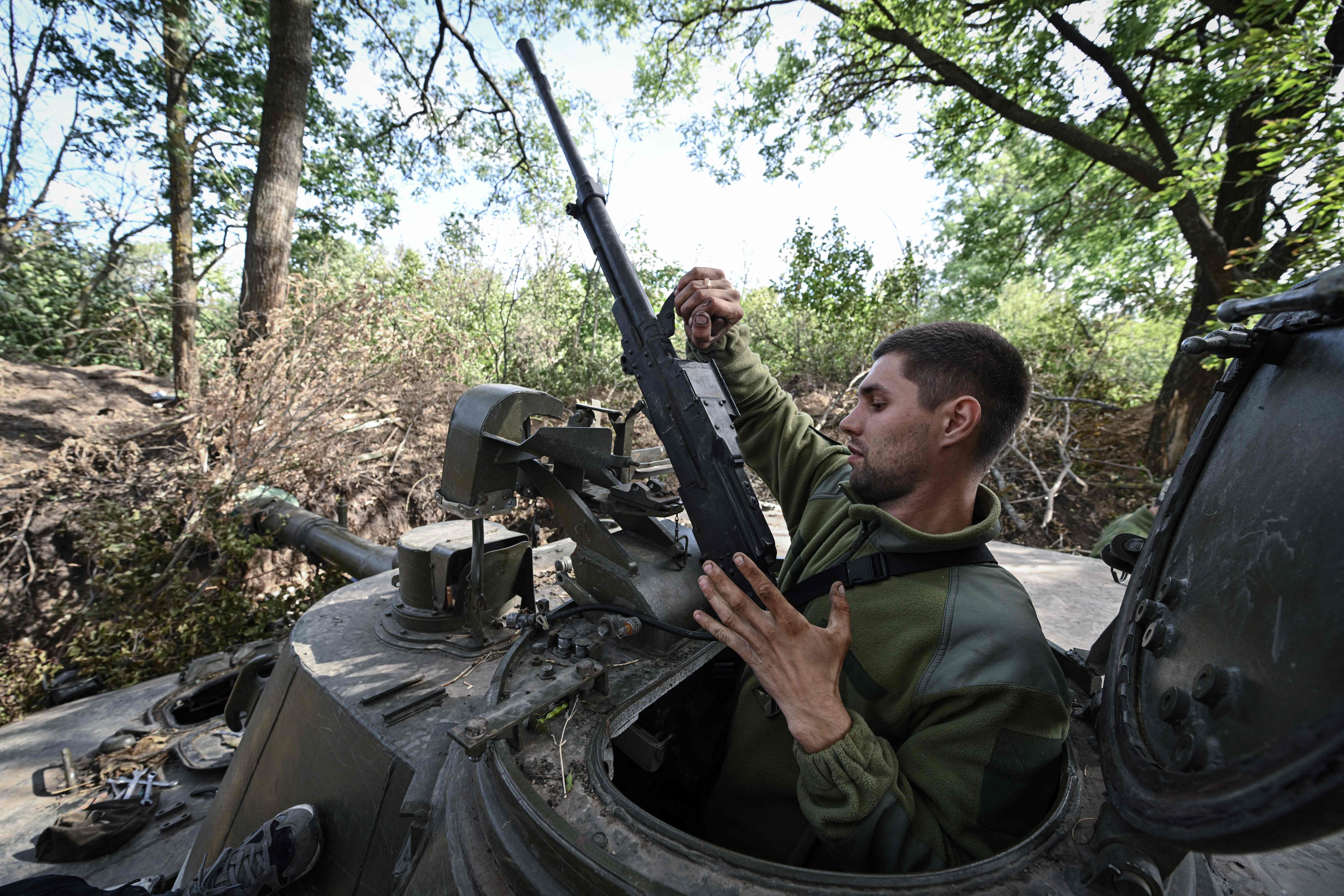Russia moves to tighten grip on Ukraine as separatists announce referendums on joining Moscow
Votes in four regions will be held later this week
Your support helps us to tell the story
From reproductive rights to climate change to Big Tech, The Independent is on the ground when the story is developing. Whether it's investigating the financials of Elon Musk's pro-Trump PAC or producing our latest documentary, 'The A Word', which shines a light on the American women fighting for reproductive rights, we know how important it is to parse out the facts from the messaging.
At such a critical moment in US history, we need reporters on the ground. Your donation allows us to keep sending journalists to speak to both sides of the story.
The Independent is trusted by Americans across the entire political spectrum. And unlike many other quality news outlets, we choose not to lock Americans out of our reporting and analysis with paywalls. We believe quality journalism should be available to everyone, paid for by those who can afford it.
Your support makes all the difference.Four Russian-controlled regions in Ukraine all announced they will hold snap referendums later this week on officially becoming part of Russia – a move seen as a precursor to Moscow claiming some of the territory it invaded.
In what appears to be a coordinated political challenge to the West, Russia-installed separatists in Donetsk, Luhansk and occupied parts of Kherson and Zaporizhzhia said they would hold votes to officially leave Ukraine and be controlled by Moscow instead.
But the votes, which come after Russia lost much of the territory it gained at the beginning of the war, were dismissed as a “sham” by Ukraine and the United States.
“The Russians can do whatever they want. It will not change anything,” foreign minister Dmytro Kuleba said.
In a tweet, he added: “Ukraine has every right to liberate its territories and will keep liberating them whatever Russia has to say.”
Vladimir Putin, who is due to address the nation on Wednesday in a televised broadcast after delaying it on Tuesday night, is under pressure to expand the country’s borders further into Ukraine.
Together, the separatist-controlled areas represent 15 per cent of Ukrainian territory, an area about the size of Hungary or Portugal.
US national security adviser Jake Sullivan said Washington rejected any such referendums “unequivocally”. French president Emmanuel Macron and Lithuanian president Gitanas Nauseda both used the word “parody” to describe the planned votes.
In Donetsk, in Ukraine’s east, the separatists said they would hold a referendum between 23 and 27 September and also called on President Vladimir Putin to admit their territory to Russia as soon as possible after the vote.
Denis Pushilin, head of the self-proclaimed Donetsk People’s Republic (DPR) wrote to the Russian leader on social media on Tuesday: “I ask you, as soon as possible, in the event of a positive decision in the referendum – which we have no doubt about – to consider the DPR becoming a part of Russia.”
The separatist Luhansk People’s Republic (LPR), also in the east of Ukraine, also said on Tuesday it intends to hold a referendum on joining Russia on the same dates.
Donetsk and Luhansk together form much of the Donbas region, which has been gripped by separatist fighting since 2014.
In Kherson, in Ukraine’s south, the call for a vote was first made a fortnight ago, but “paused” for security reasons.
But in a post on the Telegram messaging app, Vladimir Saldo, the Russian-appointed head of Kherson, said the vote would go ahead and he hoped the area would become “a part of Russia, a fully-fledged subject of a united country”. Russian forces control around 95 per cent of Kherson’s territory.
Moscow recognised Donetsk and Luhansk as independent countries at the start of its invasion in February, and now says securing their territory is the main purpose of its “special military operation”.
The decision to hold votes was backed on Tuesday by Russia’s former president Dmitry Medvedev, an arch Putin loyalist.
He claimed that any votes by regions to join Russia would make their new borders “irreversible” and enable Moscow to use “any means” to defend them.
He added that the votes would “restore historic justice” and would “completely change” Russia’s future trajectory.
“After they are held and the new territories are taken into Russia’s fold, a geopolitical transformation of the world will become irreversible,” he said.
“An encroachment on the territory of Russia is a crime that would warrant any means of self-defence,” he said, adding that Russia would enshrine the new territories in its constitution so no future Russian leader could hand them back.
Such votes would almost certainly go Moscow’s way, but not be recognised by Western governments.
However, the referendums could set the stage for Moscow to escalate the conflict as Ukrainian forces battle with growing success to take back territory.

In another signal that Russia is digging in for a protracted and possibly ramped-up conflict, the Kremlin-controlled lower house of parliament voted on Tuesday to toughen laws against desertion, surrender and looting by Russian soldiers.
Lawmakers also voted to introduce possible 10-year prison terms for soldiers refusing to fight. If approved, as expected, by the upper house and then signed by Putin, the legislation would strengthen commanders’ hands against failing morale reported among soldiers. Kremlin spokesman Dmitry Peskov said there are no prospects for a diplomatic settlement.




Join our commenting forum
Join thought-provoking conversations, follow other Independent readers and see their replies
Comments